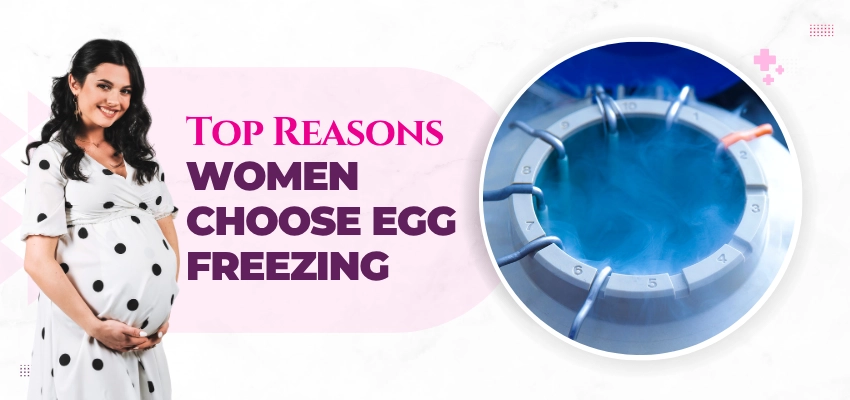For women facing medical conditions that may impact fertility, such as cancer treatments (chemotherapy or radiation), autoimmune disorders, or endometriosis, egg freezing offers an opportunity to preserve fertility before undergoing treatments that might affect ovarian function. Chemotherapy, for instance, can cause early menopause or permanent infertility, making it crucial to freeze eggs beforehand. Women diagnosed with conditions like PCOS or premature ovarian failure may also use egg freezing to safeguard their ability to conceive later.
3. Avoiding the Risks of Age-Related Fertility Decline
As women age, particularly after 35, their egg quality and quantity naturally decline, making conception more challenging. Egg freezing provides an option for women to preserve their eggs at a younger age when they are healthier and more viable for future fertilization. By freezing eggs early, women can reduce the risks associated with age-related fertility issues, including genetic abnormalities and difficulty achieving pregnancy later in life.
Key Takeaway: Freezing eggs at a younger age allows women to bypass age-related fertility decline, enhancing the likelihood of successful conception later in life.
4.Having More Control Over Family Planning
In an ideal world, women would have full control over the timing of when they start their families. However, personal, financial, or relationship circumstances may not always align with the ideal timing for pregnancy. Egg freezing offers women greater control over when they want to have children, especially if they are not yet in a stable relationship or do not feel ready for parenthood. With egg freezing, women can secure the option to become mothers when they are ready, giving them peace of mind and more flexibility.
Key Takeaway: Egg freezing provides women with greater autonomy over their reproductive choices, allowing them to plan their families on their terms.
5. Protecting Fertility for Women with Low Ovarian Reserve
Some women are born with a lower ovarian reserve (a smaller number of healthy eggs) than others, making conception more difficult even at a younger age. For women diagnosed with conditions such as low AMH (anti-Müllerian hormone) or diminished ovarian reserve, freezing eggs early in life can offer the opportunity to preserve a higher number of viable eggs for later use. This helps increase the chances of successful conception later in life, especially when undergoing IVF treatment.
Key Takeaway: Egg freezing is an option for women with low ovarian reserve, giving them a better chance at pregnancy later on.
6. Safeguarding Fertility for Same-Sex Couples and Single Women
Egg freezing also provides same-sex couples and single women with the opportunity to safeguard their fertility and preserve the option to have children in the future. For women who are not currently in a relationship, egg freezing offers a chance to preserve their fertility without worrying about time running out. In the case of same-sex couples, egg freezing can be a pathway to future parenthood with a partner or via sperm donation.
Key Takeaway: Egg freezing offers an option for single women and same-sex couples to preserve fertility and plan for future family-building options.
How Does Egg Freezing Work?
The process of egg freezing involves several steps:
- Ovarian Stimulation: Women undergo hormonal treatment for about 10-14 days to stimulate the ovaries to produce multiple eggs.
- Egg Retrieval: Once the eggs are mature, a doctor retrieves them in a quick, minimally invasive procedure.
- Freezing: The mature eggs are frozen and stored for future use.
The process typically takes a few weeks and requires regular monitoring through ultrasounds and blood tests. Once frozen, eggs can be stored for many years, and can later be thawed, fertilized, and implanted through IVF when the woman is ready to conceive.
Empowering Women Through Fertility Preservation
Egg freezing offers women greater control over their fertility, the ability to pursue life goals without sacrificing family planning, and a second chance at motherhood. Whether it’s to delay childbearing for personal reasons or preserve fertility for medical conditions, egg freezing is an option that gives women the flexibility to make informed decisions about their reproductive futures.
If you are considering egg freezing, it's important to consult with a fertility specialist to discuss your options and determine the best course of action based on your age, health, and future family planning goals.
